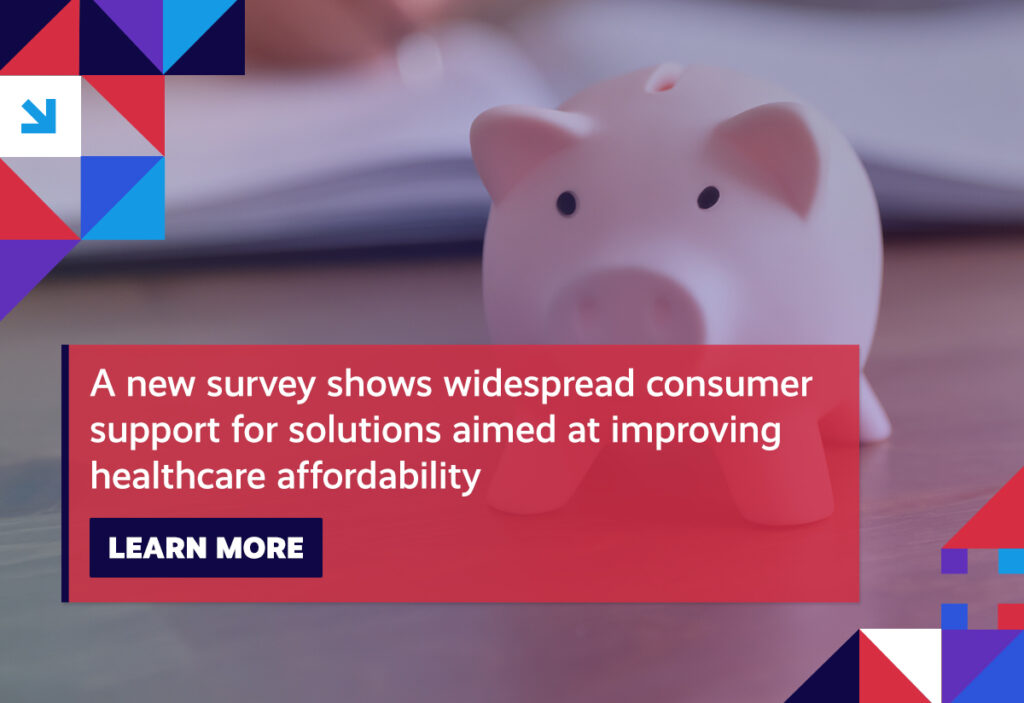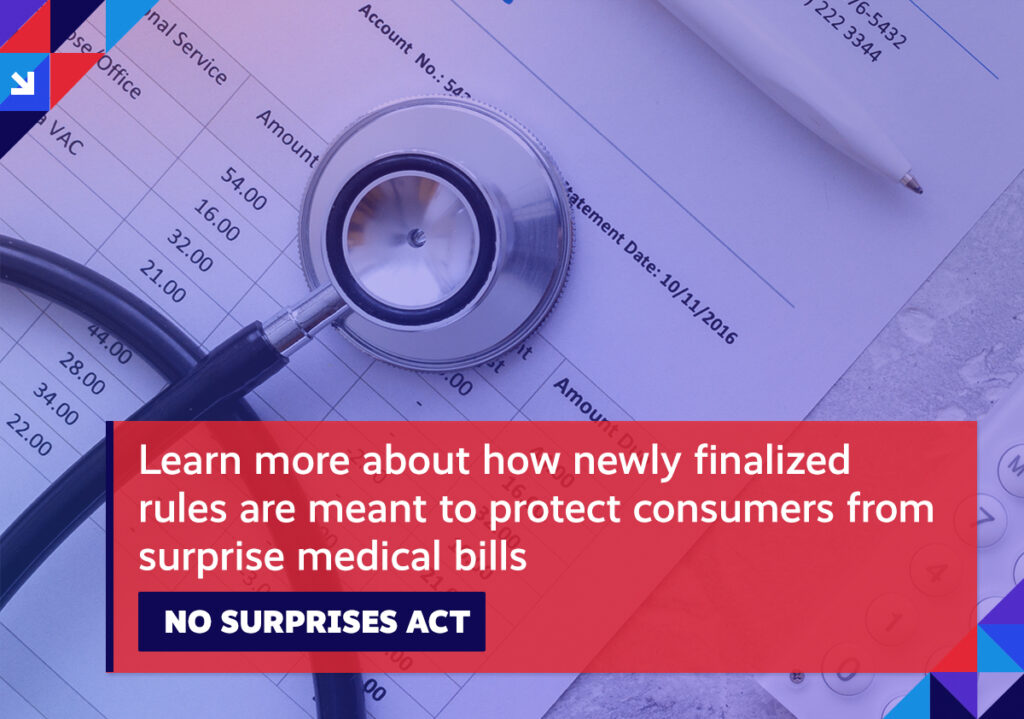Stakeholders emphasize the need to ensure final surprise medical billing rules protect consumers during the arbitration process; hospitals exploit a discount drug program to mark up life-saving drugs; Medicare Advantage plans spend less on low-value care than traditional Medicare; and, hundreds of healthcare organizations urge lawmakers to extend COVID telehealth flexibilities.
We encourage you to stay involved as implementation efforts surrounding healthcare reform progress. Visit the Health Action Network and be sure to let us know what’s on your mind.
Item of the Week

Week in Review
Surprise Medical Billing: Earlier this month, a coalition of healthcare stakeholders sent a letter to the Departments of Health & Human Services (HHS), Labor, and the Treasury, emphasizing the importance of protecting consumers during the arbitration process now that the rules governing how surprise medical billing disputes are to be resolved have been finalized. Specifically, the letter points to the tremendous impact that the No Surprises Act has already had, having prevented more than 2 million surprise medical bills in the first two months of this year, putting it on pace to protect consumers from over 12 million such bills by the end of this year alone. However, a troubling trend has also surfaced, with a recent analysis showing that providers and hospitals have been using the independent dispute resolution (IDR) process significantly more than had been anticipated, with more than 46,000 of these disputes having been initiated in under four months. Accordingly, the letter urges the Departments to vigilantly monitor abuse and overutilization of the IDR process and suggests that they make it clear that IDR should be used sparingly as a last resort for payment determinations. Separately, a new study published in Health Affairs highlights what happens when dispute arbitration allows for the consideration of provider charges, such as in New York, where researchers found that doing so may have incentivized out-of-network providers to jack up their charges in order to increase upcoming or future out-of-network payments. This is in stark contrast to other markets, where state laws employ a payment standard tied to in-network rates rather than provider charges, like California, which saw a decrease in provider out-of-network charges.

340B: A new report details how safety net hospitals participating in the federal 340B drug pricing program are marking up the cost of the drugs they purchase by as much as 11 times what they paid. The 340B program was established to allow hospitals and clinics serving low-income and uninsured populations the ability to purchase prescription drugs at a discount. The program, however, continues to be a source of increasing controversy, especially as it has grown. According to the report released by the Community Oncology Alliance (COA), those markups are driving up the cost of care for cancer patients by thousands of dollars. Drilling into the data, COA researchers estimated that 340B hospitals were receiving a 34.7 percent discount on the average sales price of the drugs they purchased. Meanwhile, the median markup of the oncology drugs studied was 4.9 times those hospitals’ acquisition costs. A separate report released last week by the Center for Medicine in the Public Interest also found that hospitals were reaping 340B revenue while failing to provide a commensurate level of charity care.
Medicare Advantage Value: According to the results of a new study, less money is spent on low-value care in the Medicare Advantage (MA) program than in traditional Fee-for-Service Medicare (FFS). Published in JAMA Health Forum, researchers examined data from millions of beneficiaries enrolled in an MA plan and concluded that those beneficiaries received 9.2 percent fewer low-value services than FFS beneficiaries. The authors note that those low-value services – including tests, treatments, and procedures that either only marginally improve outcomes or fail to improve them at all – are not only prevalent and persistent in FFS, but costly, and potentially harmful. They suggest that the reduced incidence of low-value care in MA is associated with the elements of value-based insurance design that distinguishes the program from FFS.
Telehealth: Hundreds of employers, health groups, and other key industry stakeholders sent a letter last week urging Senate lawmakers in Washington to extend telehealth flexibilities that were enacted to ensure patients were able to access the care they needed throughout the ongoing coronavirus public health crisis. Those flexibilities opened the door to skyrocketing telehealth utilization in the early days of the pandemic, but are scheduled to expire 151 days after the end of the COVID public health emergency, unless lawmakers do something. In the letter, stakeholders make the case that virtual care has now become a fundamental part of our healthcare delivery system and urge Senators to extend the flexibilities a full two-years after the end of the public health emergency. Doing so, they continue, will improve patient access to high-quality care, while strengthening continuity of care beyond the pandemic.
Spotlight

| You can keep up with the latest by following the Health Action Network on Twitter and by liking us on Facebook. And, be sure to check us out on LinkedIn, too. As always, let us know if there’s something you’d like to see covered in a future newsletter. |
